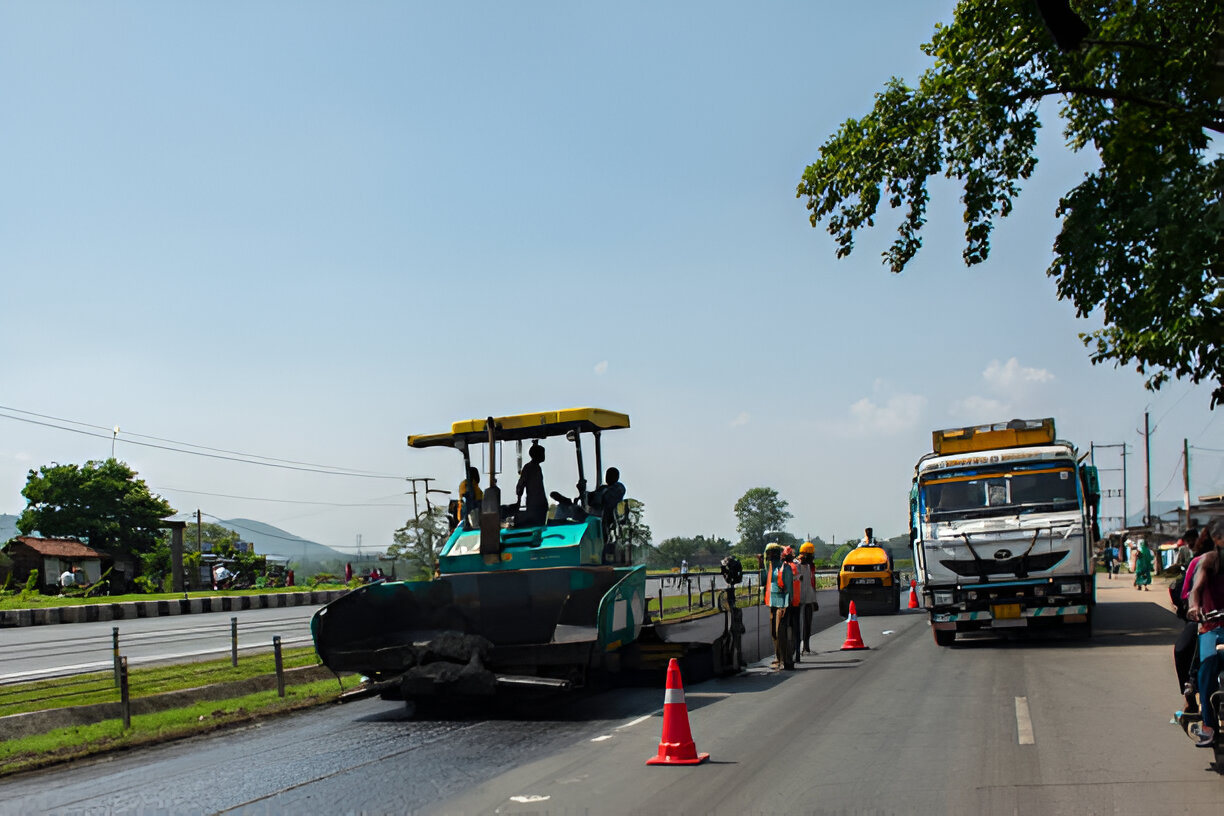Bituminous Surface Treatment: A Cost-Effective Solution for Road
Preservation
As road networks expand and traffic volumes increase, maintaining road surfaces in
good condition becomes a critical concern for governments and contractors alike.
Bituminous Surface Treatment (BST) has emerged as a practical and cost-effective
solution for preserving and improving the longevity of roads. Commonly used for low-
traffic roads, highways, and rural paths, this treatment is gaining popularity due to its
affordability, versatility, and efficiency in extending pavement life.
This blog explores what Bituminous Surface Treatment is, its benefits, applications,
and why it is a preferred solution for road preservation in various parts of the world,
including India.
What is Bituminous Surface Treatment?
Bituminous Surface Treatment, also known as chip sealing, involves applying one or
more layers of bitumen (a petroleum-based binder) followed by aggregate materials
like gravel or crushed stone. The process creates a protective and durable layer on
the road surface, enhancing its resistance to water damage, oxidation, and wear
caused by vehicles.
BST is commonly applied on existing pavements to seal cracks, improve surface
texture, and increase skid resistance, making it a versatile road maintenance
technique.
Benefits of Bituminous Surface Treatment
- Cost-Effectiveness
Compared to resurfacing or reconstructing a road, BST is significantly more
affordable. It requires fewer materials, less labour, and less time to apply, making it
an ideal solution for budget-conscious projects. - Water Resistance
The bitumen layer acts as a waterproof barrier, preventing moisture from seeping
into the road base. This reduces the likelihood of potholes and structural damage
caused by water infiltration. - Enhanced Skid Resistance
The application of aggregate materials improves surface texture, providing better
traction for vehicles and increasing road safety, particularly in wet conditions. - Prolonged Pavement Life
By sealing cracks and protecting the surface from environmental damage, BST
extends the lifespan of the road, delaying the need for more extensive repairs or
reconstruction.
- Quick Application
BST can be applied relatively quickly, minimizing traffic disruption and reducing
downtime for road users. - Environmentally Friendly
Recycled materials, including reclaimed asphalt pavement (RAP), can be
incorporated into the process, reducing waste and promoting sustainability.
Applications of Bituminous Surface Treatment
Rural and Low-Traffic Roads: Ideal for roads with minimal traffic, where
cost-effectiveness is a priority.
Highways and Bypasses: Enhances skid resistance and surface texture,
improving safety for high-speed traffic.
Parking Lots and Driveways: Provides a durable and aesthetically pleasing
surface for smaller areas.
Road Preservation Projects: Used to rejuvenate aging pavements and
prevent further deterioration.
Challenges of Bituminous Surface Treatment
While BST is highly effective, it has limitations. It may not be suitable for heavily
trafficked urban roads due to its comparatively lower structural strength. Additionally,
proper timing and weather conditions are essential for successful application, as cold
or wet weather can hinder the curing process.
Why Choose Bituminous Surface Treatment?
For countries like India, where road networks span across diverse terrains and
climates, maintaining roads within limited budgets is a major challenge. BST offers a
practical solution that balances cost, durability, and performance, making it a
valuable tool for road preservation. By adopting this technique, road authorities can
ensure smoother, safer, and more durable pavements for years to come.
Conclusion
Bituminous Surface Treatment is more than just a maintenance strategy; it’s a
proactive measure to preserve and enhance road infrastructure. Its affordability,
quick application, and environmental benefits make it a preferred choice for
contractors and governments worldwide.
As India continues to modernize its road networks, integrating cost-effective
solutions like BST will play a crucial role in building a sustainable and efficient
transportation system.

